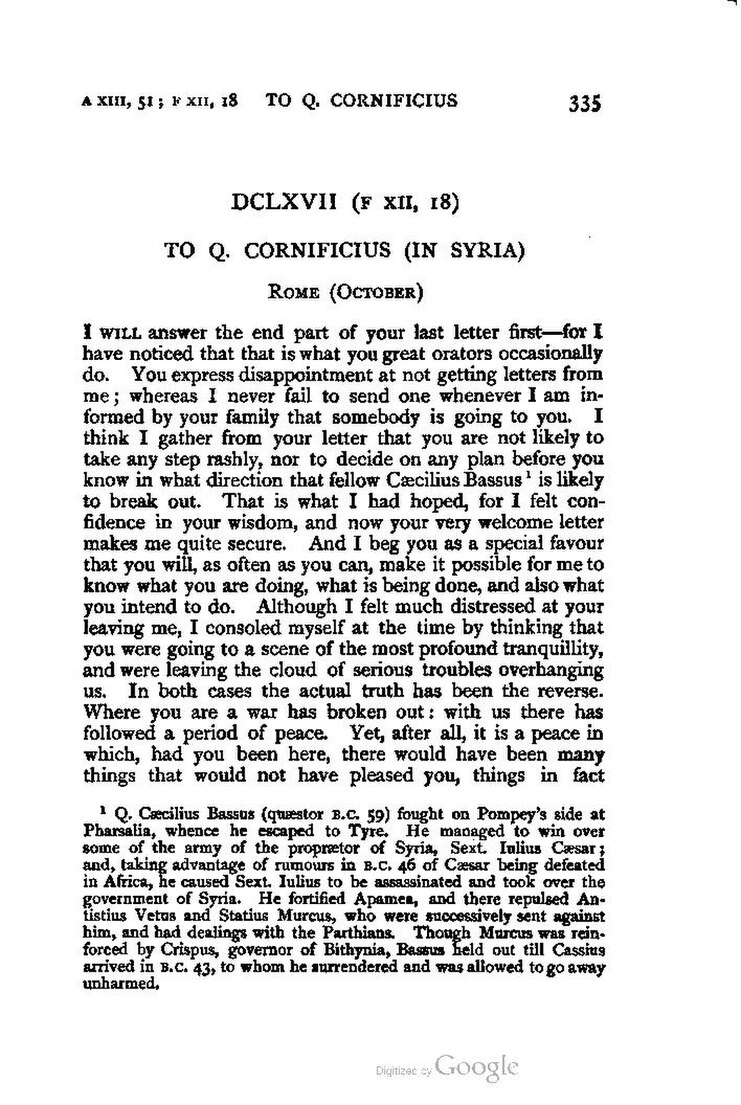DCLXVII (F XII, 18)
TO Q. CORNIFICIUS (IN SYRIA)
Rome (October)
I will answer the end part of your last letter first—for I
have noticed that that is what you great orators occasionally
do. You express disappointment at not getting letters from
me; whereas I never fail to send one whenever I am informed
by your family that somebody is going to you. I
think I gather from your letter that you are not likely to
take any step rashly, nor to decide on any plan before you
know in what direction that fellow Cæcilius Bassus[1] is likely
to break out. That is what I had hoped, for I felt confidence
in your wisdom, and now your very welcome letter
makes me quite secure. And I beg you as a special favour
that you will, as often as you can, make it possible for me to
know what you are doing, what is being done, and also what
you intend to do. Although I felt much distressed at your
leaving me, I consoled myself at the time by thinking that
you were going to a scene of the most profound tranquillity,
and were leaving the cloud of serious troubles overhanging
us. In both cases the actual truth has been the reverse.
Where you are a war has broken out: with us there has
followed a period of peace. Yet, after all, it is a peace in
which, had you been here, there would have been many
things that would not have pleased you, things in fact
- ↑ Q. Cæcilius Bassus (quæstor B.C. 59) fought on Pompey's side at Pharsalia, whence he escaped to Tyre. He managed to win over some of the army of the proprætor of Syria, Sext. Iulius Cæsar; and, taking advantage of rumours in B.C. 46 of Cæsar being defeated in Africa, he caused Sext. Iulius to be assassinated and took over the government of Syria. He fortified Apamea, and there repulsed Antistius Vetus and Statius Murcus, who were successively sent against him, and had dealings with the Parthians. Though Murcus was reinforced by Crispus, governor of Bithynia, Bassus held out till Cassius arrived in B.C. 43, to whom he surrendered and was allowed to go away unharmed.
